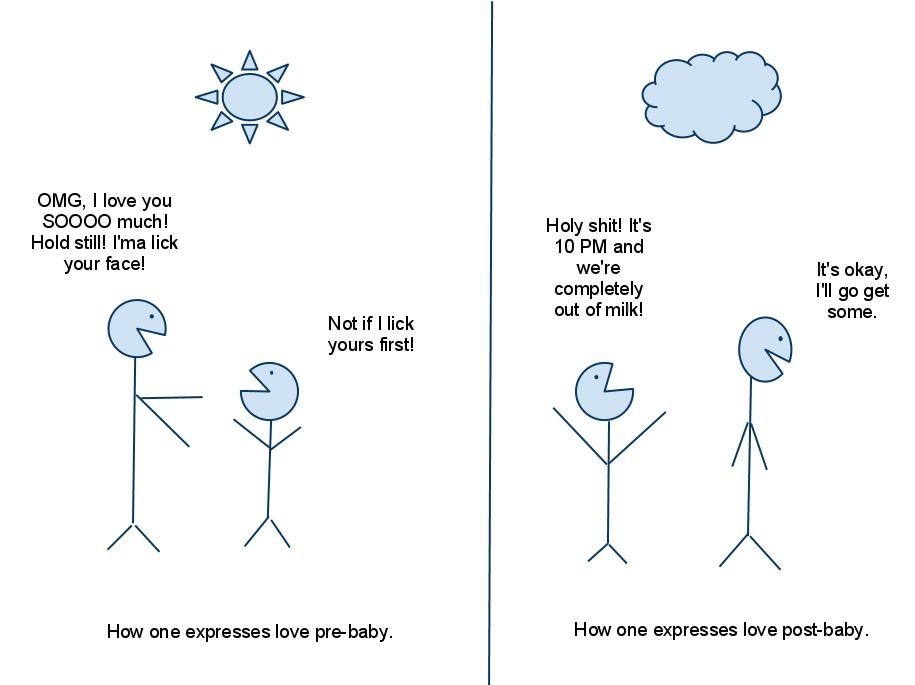From Aaron Gouveia, a reporter in Cape Cod who writes the blog DaddyFiles, comes a post that in just a few hundred brutal words offers the best argument I’ve read against those anti-abortion “informed consent” laws that require women to sit through gruesome explanations of what is about to happen to themselves and to the fetus.
There are personal stakes for him; as he wrote a couple weeks ago, four months into their pregnancy, he and his wife got the news that their unborn child–they have a young son already–had serious health problems. The fetus cannot survive. So here they are, four months in, needing to terminate the pregnancy. As Aaron wrote yesterday:
Do you know that it’s law in this state to describe any potential medical procedures in detail so the patient is properly versed? The rational part of my brain understands that. You want people to know what they’re getting into. And doctors need to cover their own butts. I get it.
But perhaps, just maybe, when a woman is wailing and begging you not to describe the intricacies involving the removal of her unborn baby from her already swollen belly, you could listen. And abide. Believe me, I read through it all. Every word. And no mother (or father for that matter) should ever have to hear such things.
He also hinted that he and his wife had to navigate anti-abortion protesters to even get into the clinic, and promised to write more about that later.
My heart goes out to Aaron and his wife: his post was mainly about how helpless he feels because he cannot even be in the room with her during the procedure. The impulse he has–the impulse to protect his family and absorb life’s punishment so they don’t have to–is fatherhood at its best.
Of course, Aaron’s post is about a personal pain; it’s not a political event. But his courage in explaining the whole dismal situation is sorely needed. Because more and more states are electing to probe and rut into the emotional lives of adults because they think it serves their religion. Informed consent may be a medically sound practice, but it has been hijacked by abortion foes and in many places includes unproven assertions on things like fetal pain. If you want a deeper look at the practice, the Guttmacher Policy Review has a strong report linking informed-consent laws to Supreme Court Justice Anthony Kennedy’s attempts to limit the use of abortion in this country.
For a sobering example of what this “consent” looks like, check out what’s required by statute in South Dakota, which compels abortion patients to first sit through a torrent of prejudicial information, as if they were Alex DeLarge from A Clockwork Orange in need of aversion therapy, and not conscientious and most likely grieving human beings. What South Dakota doctors are required to tell the woman,according to state law:
(a) The name of the physician who will perform the abortion
(b) That the abortion will terminate the life of a whole, separate, unique, living human being;
(c) That the pregnant woman has an existing relationship with that unborn human being and that the relationship enjoys protection under the United States Constitution and under the laws of South Dakota;
(d) That by having an abortion, her existing relationship and her existing constitutional rights with regards to that relationship will be terminated;
(e) A description of all known medical risks of the procedure and statistically significant risk factors to which the pregnant woman would be subjected, including:
(i) Depression and related psychological distress;
(ii) Increased risk of suicide ideation and suicide;
(iii) A statement setting forth an accurate rate of deaths due to abortions, including all deaths in which the abortion procedure was a substantial contributing factor
(iv) All other known medical risks to the physical health of the woman, including the risk of infection, hemorrhage, danger to subsequent pregnancies, and infertility
(f) The probable gestational age of the unborn child at the time the abortion is to be performed, and a scientifically accurate statement describing the development of the unborn child at that age; and
(g) The statistically significant medical risks associated with carrying her child to term compared to undergoing an induced abortion.
These types of laws weren’t aimed at married families like Aaron’s who really have no choice about the procedure. They were aimed at reckless teenagers and welfare queens and whatever other bogeymen the fundamentalists could imagine. But this is what happens when you start legislating your morality. At best, you end up sermonizing to the wrong people. At worst, you bully them into making the decision you want them to make.
Or, God forbid, you take away that choice entirely.


 You know, sometimes you feel as though a large chunk of your life can be boiled down to a few paragraphs, even a few sentences. But hats off to Our Lady of Perpetual Breadcrumbs, a momblogger who seems to have got it all into this one pithy sketch.
You know, sometimes you feel as though a large chunk of your life can be boiled down to a few paragraphs, even a few sentences. But hats off to Our Lady of Perpetual Breadcrumbs, a momblogger who seems to have got it all into this one pithy sketch. Look me in the eye and tell me your life is different? No, I didn’t think you could.
Look me in the eye and tell me your life is different? No, I didn’t think you could.